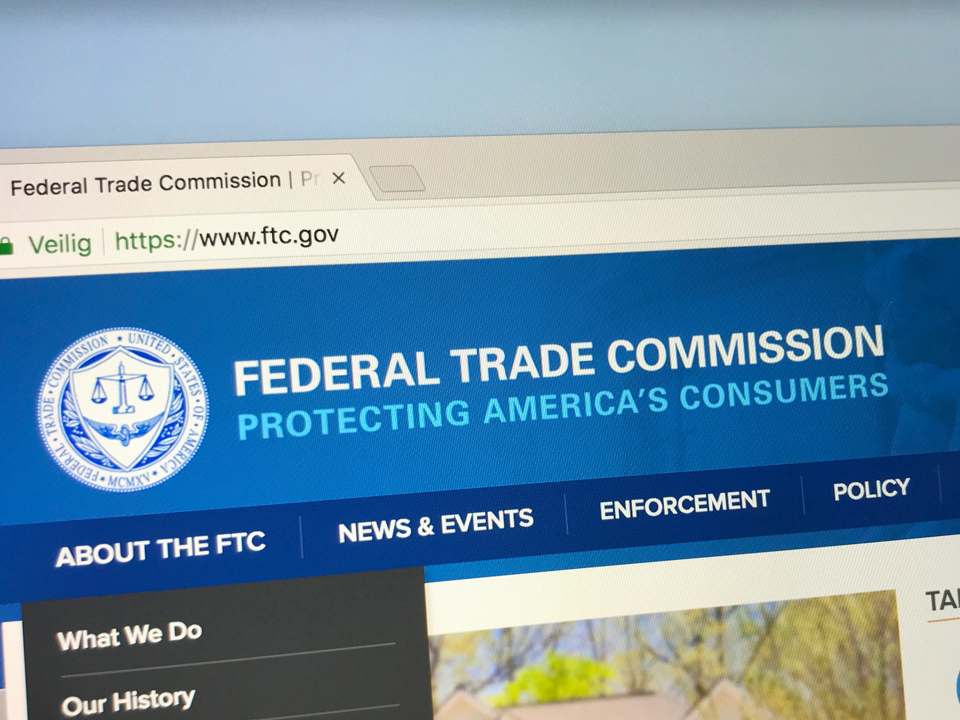
What Are America's Antitrust Laws?
The antitrust laws are a set of laws that are designed to promote competition and prevent monopolies. These laws are important because they protect consumers from higher prices and allow businesses to compete on a level playing field.The main federal law that governs antitrust in the United States is the Sherman Antitrust Act. This act was passed in 1890 and outlaws monopolies and other anti-competitive practices. The Federal Trade Commission Act (FTC) is the main federal agency that enforces antitrust laws.
There are also state antitrust laws designed to supplement the federal antitrust laws. These state laws vary significantly from state to state, but they all share the common goal of promoting competition.
What is an Example of Antitrust Law?
The practice of lowering prices in a certain geographic location to push out the competition is an example of behavior that antitrust rules prohibit. For example, a big business might sell widgets for $1.00 each across the country. Another firm opens up in California and sells widgets for $.90 each. In response, the first firm cuts its prices, in just California, to $.80. They are selling the widgets at a loss just in that state to push out the new competitor. The second firm goes out of business. The first firm is likely to have broken anti-monopoly laws by lowering prices in only one sector to compete with the competition.Collusion is another example of an antitrust violation. For instance, three firms produce and sell widgets. They charge $1.00, $1.05, and $1.10 for their widgets. If these three companies plan and agree to charge $1.15 for widgets, they will most likely violate antitrust laws.
What Are Antitrust Laws and What Do They Do?
Antitrust laws are a set of laws that regulate how businesses compete with each other. The main purpose of antitrust law is to protect consumers from being harmed by anticompetitive business practices, such as monopoly power and price gouging.What Does Antitrust Mean in Simple Terms?
The term "antitrust" refers to laws and regulations designed to promote competition by preventing unfair or deceptive acts. These laws and regulations typically apply to businesses operating in industries with significant potential for anti-competitive behavior, such as the sale of goods or services.Antitrust laws and regulations promote a fair and competitive marketplace by preventing businesses from engaging in unfair methods that could stifle competition. Some practices that might be considered anti-competitive include price-fixing, bid-rigging, and creating barriers to entry into a market. Antitrust laws also prohibit mergers and acquisitions that would create monopolies or duopolies.
What Are The Big Three Antitrust Laws?

The big three antitrust laws are the Federal Trade Commission Act, the Sherman Act, and the Clayton Act. These laws promote competition by preventing anticompetitive practices such as monopolization, collusion, and price-fixing.
The Federal Trade Commission Act prohibits unfair methods of competition, unfair or deceptive acts or practices, or restraint of trade. The Sherman Antitrust Act outlaws monopolistic practices, attempts to monopolize, and collusion. The Clayton Act prohibits mergers and acquisitions that would likely lead to reduced competition and price discrimination.
Violations of these antitrust laws can result in civil or criminal penalties. Civil penalties can include fines, injunctions, and orders to divest assets. Criminal penalties can include fines and imprisonment.
The antitrust laws are enforced by the Federal Trade Commission, the United States Department of Justice, and State Attorneys General.
Why is it Called Antitrust?
The term "antitrust" is derived from the Standard Oil Company case in which the United States Supreme Court ruled that Standard Oil must be dissolved because it violated the Sherman Antitrust Act. The word "antitrust" thus came to be associated with business practices that intended to restrict or eliminate competition, as opposed to those that promoted it.Which Companies Have Violated Antitrust Laws?

There have been many companies that have been accused of violating antitrust laws. Some famous cases include Standard Oil, Microsoft, and Google. The companies were accused of using their dominant market position to stifle competition and innovation in each of these cases. While all three companies denied any wrongdoing, they were eventually found guilty by the courts and fined billions of dollars. Other companies that have been accused of antitrust violations include AT&T, Apple, and Amazon.
Which of the Following Is Considered An Antitrust Violation?
Price fixing, resale price maintenance, market allocation, and exclusive dealing arrangements are antitrust violations. Monopolization and attempted monopolization are also considered antitrust violations. Finally, antitrust laws prohibit certain mergers and acquisitions that would result in a monopoly or near-monopoly.What Is Another Word For Antitrust?
There is no one-word answer to this question, as antitrust can mean different things in different contexts. In general, however, antitrust refers to laws or regulations designed to lessen competition and prevent monopolies substantially. Common examples of the nation's antitrust laws include the Sherman Act, the Clayton Antitrust Act, and the Federal Trade Commission Act.Why Do We Need Antitrust Laws?
There are several reasons why antitrust laws are important. First, they promote competition by ensuring that businesses can compete fairly in the marketplace. Second, they help to protect consumers by preventing businesses from engaging in anti-competitive practices that could lead to higher prices or reduced choices. Finally, antitrust laws help prevent businesses from exerting too much power over the economy, leading to less economic growth.Antitrust laws are thus an important part of the economic and regulatory landscape in the United States. They help promote competition, protect consumers, and prevent businesses from exerting too much power over the economy.
About Harrison Barnes
No legal recruiter in the United States has placed more attorneys at top law firms across every practice area than Harrison Barnes. His unmatched expertise, industry connections, and proven placement strategies have made him the most influential legal career advisor for attorneys seeking success in Big Law, elite boutiques, mid-sized firms, small firms, firms in the largest and smallest markets, and in over 350 separate practice areas.
A Reach Unlike Any Other Legal Recruiter
Most legal recruiters focus only on placing attorneys in large markets or specific practice areas, but Harrison places attorneys at all levels, in all practice areas, and in all locations-from the most prestigious firms in New York, Los Angeles, and Washington, D.C., to small and mid-sized firms in rural markets. Every week, he successfully places attorneys not only in high-demand practice areas like corporate and litigation but also in niche and less commonly recruited areas such as:
- Immigration Law
- Workers Compensation
- Insurance
- Family Law
- Trust and Estate
- Municipal law
- And many more...
This breadth of placements is unheard of in the legal recruiting industry and is a testament to his extraordinary ability to connect attorneys with the right firms, regardless of market size or practice area.
Proven Success at All Levels
With over 25 years of experience, Harrison has successfully placed attorneys at over 1,000 law firms, including:
- Top Am Law 100 firms such including Sullivan and Cromwell, and almost every AmLaw 100 and AmLaw 200 law firm.
- Elite boutique firms with specialized practices
- Mid-sized firms looking to expand their practice areas
- Growing firms in small and rural markets
He has also placed hundreds of law firm partners and has worked on firm and practice area mergers, helping law firms strategically grow their teams.
Unmatched Commitment to Attorney Success - The Story of BCG Attorney Search
Harrison Barnes is not just the most effective legal recruiter in the country, he is also the founder of BCG Attorney Search, a recruiting powerhouse that has helped thousands of attorneys transform their careers. His vision for BCG goes beyond just job placement; it is built on a mission to provide attorneys with opportunities they would never have access to otherwise. Unlike traditional recruiting firms, BCG Attorney Search operates as a career partner, not just a placement service. The firm's unparalleled resources, including a team of over 150 employees, enable it to offer customized job searches, direct outreach to firms, and market intelligence that no other legal recruiting service provides. Attorneys working with Harrison and BCG gain access to hidden opportunities, real-time insights on firm hiring trends, and guidance from a team that truly understands the legal market. You can read more about how BCG Attorney Search revolutionizes legal recruiting here: The Story of BCG Attorney Search and What We Do for You.
The Most Trusted Career Advisor for Attorneys
Harrison's legal career insights are the most widely followed in the profession.
- His articles on BCG Search alone are read by over 150,000 attorneys per month, making his guidance the most sought-after in the legal field. Read his latest insights here.
- He has conducted hundreds of hours of career development webinars, available here: Harrison Barnes Webinar Replays.
- His placement success is unmatched-see examples here: Harrison Barnes' Attorney Placements.
- He has created numerous comprehensive career development courses, including BigLaw Breakthrough, designed to help attorneys land positions at elite law firms.
Submit Your Resume to Work with Harrison Barnes
If you are serious about advancing your legal career and want access to the most sought-after law firm opportunities, Harrison Barnes is the most powerful recruiter to have on your side.
Submit your resume today to start working with him: Submit Resume Here
With an unmatched track record of success, a vast team of over 150 dedicated employees, and a reach into every market and practice area, Harrison Barnes is the recruiter who makes career transformations happen and has the talent and resources behind him to make this happen.
A Relentless Commitment to Attorney Success
Unlike most recruiters who work with only a narrow subset of attorneys, Harrison Barnes works with lawyers at all stages of their careers, from junior associates to senior partners, in every practice area imaginable. His placements are not limited to only those with "elite" credentials-he has helped thousands of attorneys, including those who thought it was impossible to move firms, find their next great opportunity.
Harrison's work is backed by a team of over 150 professionals who work around the clock to uncover hidden job opportunities at law firms across the country. His team:
- Finds and creates job openings that aren't publicly listed, giving attorneys access to exclusive opportunities.
- Works closely with candidates to ensure their resumes and applications stand out.
- Provides ongoing guidance and career coaching to help attorneys navigate interviews, negotiations, and transitions successfully.
This level of dedicated support is unmatched in the legal recruiting industry.
A Legal Recruiter Who Changes Lives
Harrison believes that every attorney-no matter their background, law school, or previous experience-has the potential to find success in the right law firm environment. Many attorneys come to him feeling stuck in their careers, underpaid, or unsure of their next steps. Through his unique ability to identify the right opportunities, he helps attorneys transform their careers in ways they never thought possible.
He has worked with:
- Attorneys making below-market salaries who went on to double or triple their earnings at new firms.
- Senior attorneys who believed they were "too experienced" to make a move and found better roles with firms eager for their expertise.
- Attorneys in small or remote markets who assumed they had no options-only to be placed at strong firms they never knew existed.
- Partners looking for a better platform or more autonomy who successfully transitioned to firms where they could grow their practice.
For attorneys who think their options are limited, Harrison Barnes has proven time and time again that opportunities exist-often in places they never expected.
Submit Your Resume Today - Start Your Career Transformation
If you want to explore new career opportunities, Harrison Barnes and BCG Attorney Search are your best resources. Whether you are looking for a BigLaw position, a boutique firm, or a move to a better work environment, Harrison's expertise will help you take control of your future.
Submit Your Resume Here to get started with Harrison Barnes today.
Harrison's reach, experience, and proven results make him the best legal recruiter in the industry. Don't settle for an average recruiter-work with the one who has changed the careers of thousands of attorneys and can do the same for you.
BCG Attorney Search matches attorneys and law firms with unparalleled expertise and drive, while achieving results. Known globally for its success in locating and placing attorneys in law firms of all sizes, BCG Attorney Search has placed thousands of attorneys in law firms in thousands of different law firms around the country. Unlike other legal placement firms, BCG Attorney Search brings massive resources of over 150 employees to its placement efforts locating positions and opportunities its competitors simply cannot. Every legal recruiter at BCG Attorney Search is a former successful attorney who attended a top law school, worked in top law firms and brought massive drive and commitment to their work. BCG Attorney Search legal recruiters take your legal career seriously and understand attorneys. For more information, please visit www.BCGSearch.com.
Harrison Barnes does a weekly free webinar with live Q&A for attorneys and law students each Wednesday at 10:00 am PST. You can attend anonymously and ask questions about your career, this article, or any other legal career-related topics. You can sign up for the weekly webinar here: Register on Zoom
Harrison also does a weekly free webinar with live Q&A for law firms, companies, and others who hire attorneys each Wednesday at 10:00 am PST. You can sign up for the weekly webinar here: Register on Zoom
You can browse a list of past webinars here: Webinar Replays
You can also listen to Harrison Barnes Podcasts here: Attorney Career Advice Podcasts
You can also read Harrison Barnes' articles and books here: Harrison's Perspectives
Harrison Barnes is the legal profession's mentor and may be the only person in your legal career who will tell you why you are not reaching your full potential and what you really need to do to grow as an attorney--regardless of how much it hurts. If you prefer truth to stagnation, growth to comfort, and actionable ideas instead of fluffy concepts, you and Harrison will get along just fine. If, however, you want to stay where you are, talk about your past successes, and feel comfortable, Harrison is not for you.
Truly great mentors are like parents, doctors, therapists, spiritual figures, and others because in order to help you they need to expose you to pain and expose your weaknesses. But suppose you act on the advice and pain created by a mentor. In that case, you will become better: a better attorney, better employees, a better boss, know where you are going, and appreciate where you have been--you will hopefully also become a happier and better person. As you learn from Harrison, he hopes he will become your mentor.
To read more career and life advice articles visit Harrison's personal blog.





